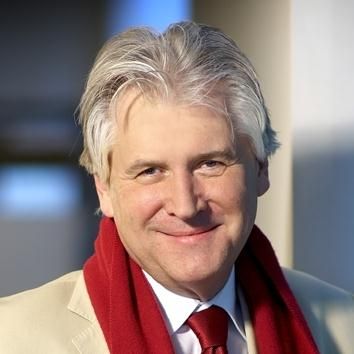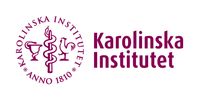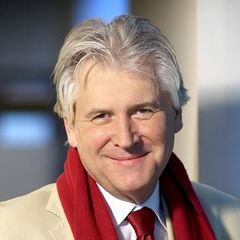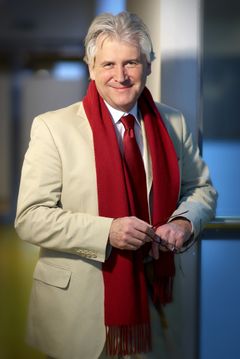Karolinska Institutet recruits international top innovator and business developer
Karolinska Institutet has recruited Professor Alexander von Gabain to the new position as Deputy Vice-Chancellor for Innovation and Corporate Alliances¹. He will be responsible for identifying, fostering and coordinating opportunities in research, health care, education, business outreach, investment and entrepreneurship leading towards an increased innovation output from Karolinska Institutet.

Alexander von Gabain's long-term experience and international reputation in academia, biotech industry and institutions facilitating innovation are prone to bolster the ”knowledge triangle” that encompasses research, education and business, with the entrepreneur in the driver's seat.
”I am excited that Alexander von Gabain returns to Karolinska Institutet in this new and for Sweden very important function. I am convinced that he, alongside with our talented scientists and external collaborators, will be able to strengthen and unlock the existing innovation output of our university.” says Professor Anders Hamsten, Vice-Chancellor of Karolinska Institutet.
”Karolinska Institutet is already world-famous for its strong assets in the 'knowledge triangle', and I believe that it will become an innovation trendsetter in the future university landscape.” says Alexander von Gabain. ”It is necessary to integrate all competences to enable development to move from the student to the entrepreneur, from research to products, and from the laboratory to the patient.”
In 1978, Alexander von Gabain obtained his Ph.D. in Molecular Biology at the University of Heidelberg, and then completed his post-doctoral training at the Stanford University Medical Center. In the 1980s and 1990s, he worked at the University of Umeå and Karolinska Institutet, and also served as advisor to pharmaceutical and biotech companies. His own research has resulted in a large number of original articles, book chapters and patents.
As Chairman of the Department of Microbiology of the University of Vienna between 1992 and 1998, he was strongly involved in the development of the private-public partnership between Boehringer Ingelheim and the University of Vienna at the Vienna Biocentre.
In 1998, he co-founded the vaccine company Intercell AG, and as CEO he led this enterprise until it was successfully floated on the Vienna Stock Exchange in 2005. Later, the company merged into the new biotech company Valneva, listed in Paris and Vienna.
von Gabain has continued working with business development in the biotech space. In his role as Chairman of the business incubator of the Viennese Universities (Inits), he has contributed to the launch of more than 140 start-up companies.
In 2008, he was appointed to the Governing Board of the European Institute of Innovation and Technology (EIT), which he then chaired between 2011 and 2014. Under his leadership, the EIT has evolved into a high-impact innovation investment fund, today with a 2.8 Bill € budget for the next 7 years.
His achievements have been acknowledged with prestigious academic prizes, industrial awards, and honorary memberships in scientific societies, including the Swedish Royal Academy of Engineering Science.
_______________
¹ The Anglo-Saxon title of Vice-Chancellor is equivalent to the American one of University President
For further information, please contact:
Claes Keisu, Press Officer, Karolinska Institutet Work: + 46 8 524 838 92 Mobile: + 46 76 215 29 62 Email: claes.keisu@ki.se
Images
Karolinska Institutet (http://ki.se/english) is one of the world’s leading medical universities. It accounts for over 40 per cent of the medical academic research conducted in Sweden and offers the country’s broadest range of education in medicine and health sciences. Since 1901 the Nobel Assembly at Karolinska Institutet has selected the Nobel laureates in Physiology or Medicine.
Subscribe to releases from Karolinska Institutet - English
Subscribe to all the latest releases from Karolinska Institutet - English by registering your e-mail address below. You can unsubscribe at any time.
Latest releases from Karolinska Institutet - English
Using social media may impair children’s attention8.12.2025 06:01:00 CET | Press Release
Children who spend a significant amount of time on social media tend to experience a gradual decline in their ability to concentrate. This is according to a comprehensive study from Karolinska Institutet, published in Pediatrics Open Science, where researchers followed more than 8,000 children from around age 10 through age 14.
POTS common in patients with long COVID3.10.2025 11:33:37 CEST | Press Release
A new study from Karolinska Institutet in Sweden shows that an unusual heart rhythm disorder, POTS, is particularly common in people with long COVID. The majority of those affected are middle-aged women. The study is published in the scientific journal Circulation: Arrhythmia and Electrophysiology.
Simple test can predict risk of severe liver disease29.9.2025 09:00:00 CEST | Press Release
A new study from Karolinska Institutet, published in the scientific journal The BMJ, shows how a simple blood analysis can predict the risk of developing severe liver disease. The method may already start to be applied in primary care to enable the earlier detection of cirrhosis and cancer of the liver.
Press invitation: Announcement of the Nobel Prize in Physiology or Medicine 202523.9.2025 13:00:00 CEST | Press Invitation
The Nobel Prize in Physiology or Medicine 2025 will be announced on Monday October 6 at 11.30 am CEST (at the earliest).
How mutations in bodily tissues affect ageing20.8.2025 11:00:00 CEST | Pressmeddelande
Two new studies from Karolinska Institutet in Sweden have investigated how mutations that occur in muscles and blood vessels over time can affect ageing. The studies, which are published in Nature Aging, show that such mutations can reduce muscle strength and accelerate blood vessel ageing. The results can be of significance to the treatment of age-related diseases.
In our pressroom you can read all our latest releases, find our press contacts, images, documents and other relevant information about us.
Visit our pressroom

